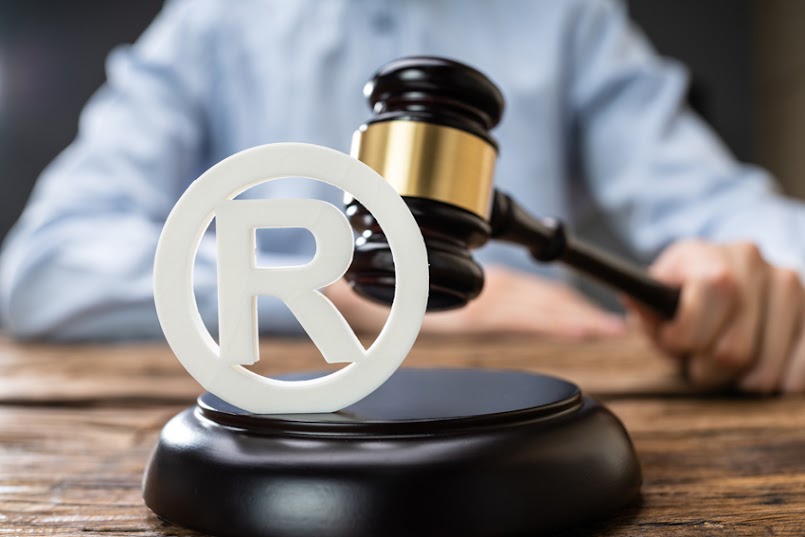Copyright Protection for Websites and Domains
If you own a website, it is considered intellectual property, which means it can be protected with a copyright. Therefore, you may consider taking the proper steps to protect it, including your company's logo, the domain, and all images, including the graphics, for added security.
How Website and Domain Copyrights Work
Provided the content on your website is original, and as the applicant, you are also the owner of the site, then you may register your website for copyright protection.
According to the U.S Copyright Office, the content that qualifies for copyright protection includes but is not limited to music, screen displays, videos, blogs, articles, and literature. However, the U.S. Copyright Office states that you can only copyright the content that is on your site at the time of the registration, meaning any enhancements made to the website or any works that are created and then included on your site later will require you to register them as well.
Furthermore, you cannot copyright your website's format, the layout, or the functional design features of the site. You also cannot copyright ideas for your website.
According to the U.S. Copyright Office, you also cannot copyright content that is included on your site by users, such as customer reviews or user comments, because they belong to the user, which means they are already copyrighted. Any creative works that are available to the public as a whole are also not subject to copyright because no one exclusively owns them.
Lastly, familiar works, such as common names, icons, or symbols as well as hypertext links or links to outside sites, are also not subject to copyright. However, if you incorporate internal links that connect to other pages on your site, they are subject to copyright.
Unfortunately, there is no copyright protection for domains; however, you can register your domain name through a domain name registrar to ensure it is protected.
How to Copyright Your Website
To copyright your website, you must, first, determine who owns the works on your website. For instance, if an employee of your company creates content for your company website, then your company automatically owns the copyright to the material.
However, if your company hires an independent contractor to create the works for your company website, then the independent contractor owns the work because they are not an employee of the company; therefore, it is considered work made for hire. Consequently, you'll need to establish an agreement with the contractor that gives your company exclusive rights to the content.
Next, you'll need to place a copyright notice, such as the copyright symbol, or use the word copyright, along with the date of the copyright and your company's name on each page of your website. Though you automatically have copyright protection the instant you create the website content and then put it up for the public, it is still a good idea to take added steps to safeguard your content. Once you add the copyright notice to your pages, be sure to update the year as needed, so that it remains active.
You will also need to register your content with the U.S. Copyright Office, which can be done just by visiting their website and then registering under the Other Digital Content section. By copyrighting your works with the U.S. Copyright Office, it helps ensure you can get protection from the court of law in the event there is an infringement.
Who May Need to see a Copyright Lawyer to Protect Their Intellectual Property
Since copyrights for your website can be a bit trying to understand on your own, it is always a good idea to seek the guidance and advice of a qualified copyright lawyer who is highly knowledgeable and experienced in copyright protection for websites that can assist you with everything you need to know to secure a copyright. The lawyer can also ensure that your content qualifies for copyright protection and doesn't fall under another category of intellectual protection, such as a trademark or a patent.
There are also certain instances when you should contact a copyright lawyer, such as if you intend to use someone else's work that owns the copyright. Hiring a lawyer before using the material can help ensure you don't violate the copyright owner's rights, also known as infringement, which is punishable by law. In the event, you have already infringed upon an owner's copyrights; a good lawyer can help you understand your rights under the law, as well as help protect your interests.
You may also need a lawyer if you discover that your copyrights have been violated. If there has been an infringement of your works, a good lawyer can help protect your rights as well as get you the compensation you deserve.
If you are an artist, author, or another producer of creative works, and someone else has an interest in using your content, you may also consider contacting a lawyer who can thoroughly assess the offer and explain your options.
The lawyer can also draw up any necessary agreements, negotiate on your behalf, as well as handle various other issues regarding the licensing and transferring of your copyright to help ensure your legal rights and interests are protected.
Ultimately, your company website is a valuable asset for generating business; therefore, you should protect it just like you would any other business asset. Failure to do so could result in someone duplicating your material, which can decrease its effectiveness and ultimately cut into your bottom line. For more information concerning copyrighting your creative works and other intellectual property, including your website, consult with a copyright lawyer.
About the Author
Fran Perdomo is an NYC Copyright Lawyer practicing in all areas of Intellectual Property. Learn more by visiting her website at PerdomoLaw.com
Additional References




Comments
Post a Comment